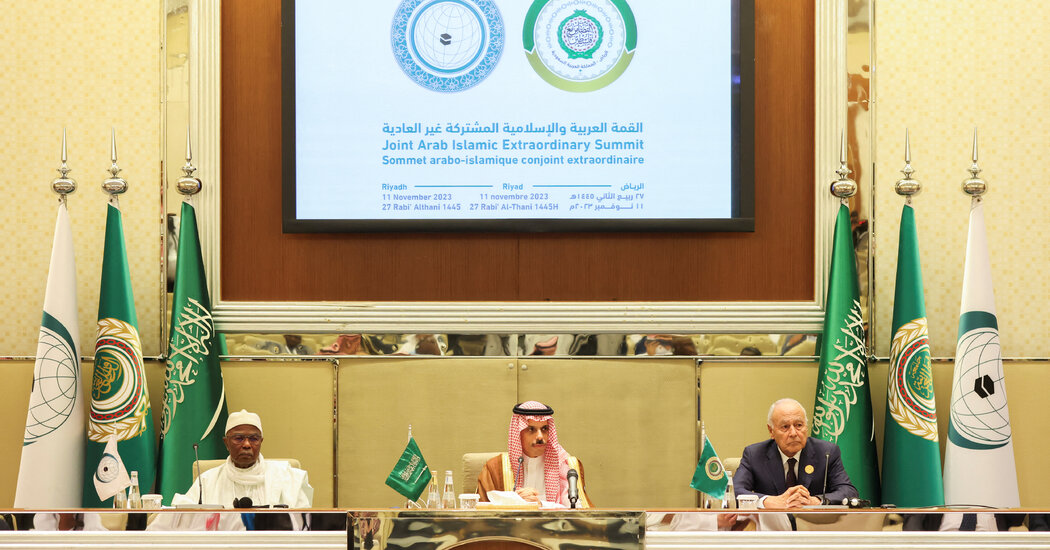Leaders of Iran and Saudi Arabia, long-standing regional rivals, recently met in Riyadh. The summit, held in March, saw the restoration of diplomatic ties after years of hostility. This past weekend’s gathering was notable for the call to cease hostilities in Gaza, and to ensure the unconditional delivery of humanitarian aid to the besieged territory, largely decimated by Israeli forces following the Oct. 7 Hamas attack in southern Israel.
Given historical support for opposing factions within proxy conflicts across the wider region, the detente between Sunni monarchy in Saudi Arabia and Shiite government in Iran following their diplomatic breakthrough brokered by China was a significant development, the outcome of which remained to be seen.
However, Israel’s offensive in Gaza played a role in expediting this warming of ties between Saudi Arabia and Iran, something that was exemplified as Iran, a key Hamas patron, reportedly provided military training to the Palestinian group.
Riyadh’s summit hosted Iranian President Ebrahim Raisi, marking the first such visit by an Iranian president to Saudi Arabia in over a decade. Raisi was received by Crown Prince Mohammed bin Salman, following their first phone conversation a few days after Oct. 7.
The war in Gaza was primarily sparked by the Oct. 7 attacks on southern Israel by Hamas, resulting in approximately 1,200 deaths and 240 individuals taken hostage, according to Israeli sources.
In response, Israel bombarded Gaza with thousands of airstrikes, cut off essential supplies, and conducted ground invasions. The loss of life has been significant, mostly civilians including thousands of Palestinians, many women and children, as reported by the Gaza health ministry.
At the summit, President Raisi accused the international community of being silent about the violations against civilians in Gaza. Meanwhile, Israel and the U.S. expressed opposition to an immediate cease-fire, fearing that it would allow Hamas’s military wing to regroup. However, Israel did agree to short “humanitarian pauses” to allow people to leave combat zones.
Before the Oct. 7 attack, the Saudi crown prince had explored the possibility of normalizing diplomatic ties with Israel. He remarked that this crisis underscored the failure of the Security Council and the international community to put an end to Israel’s blatant violations of international laws.
After delivering their speeches, both leaders left the conference hall for a bilateral meeting.
Following the war, Iranian proxies have carried out attacks against Israel and U.S. forces, raising fears of a wider conflict.
In recent years, Hamas’s ties to Iran have experienced a renewal. Hamas leaders restored the group’s relations with Iran, resulting in a deepening of the relationship between Hamas’s military wing and Iran’s network of regional militias.
Originally, Saudi Arabia had planned for two summits, one for the Arab League and the other for the much larger Organization of Islamic Cooperation. However, they were combined into one event on Saturday, with representatives from Egypt, Jordan, Lebanon, Turkey, and Iraq also in attendance.
